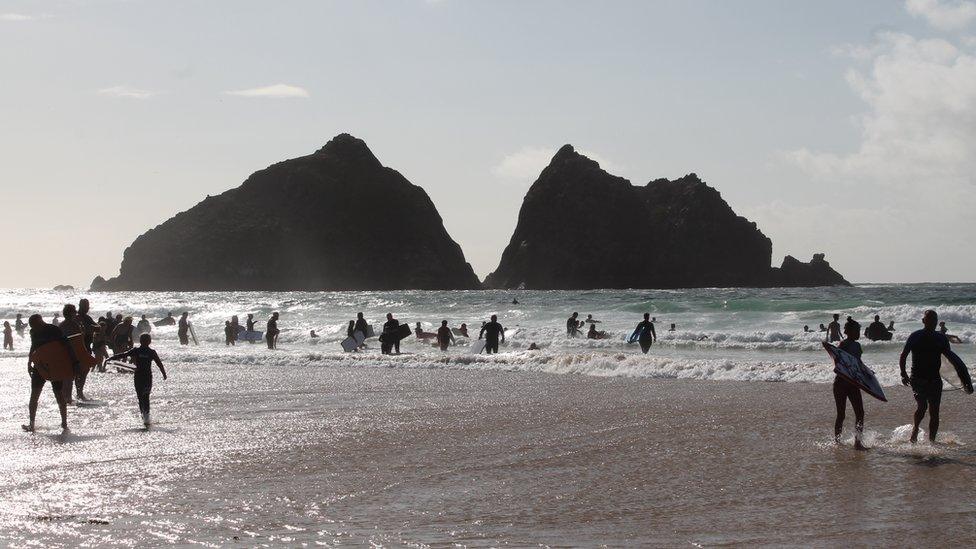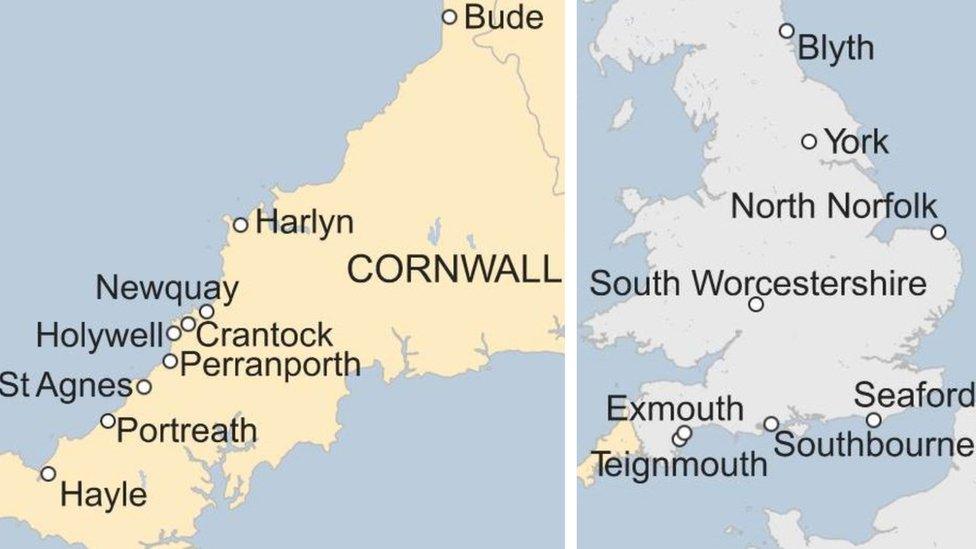Surf clubs in lifeguard out-of-hours rescues
- Published

Many beach goers use the sea in the mornings and evenings when lifeguards are not on duty
Surf lifesaving clubs have carried out more than 50 rescues this year at times when RNLI lifeguards are not on duty.
Since last year, the coastguard has been able to call on qualified surf lifesaving club (SLSC) members who are often on beaches at off-peak times.
There are now registered patrols at 17 SLSCs in places, including Cornwall, Devon, Norfolk, Sussex and Yorkshire.
So far in 2018 they have carried out 57 rescues in the mornings and evenings.
Lifeguards are usually on duty between 10:00 and 18:00.
'Warning of dangers'
SLSC members can qualify for one of five levels, external of patrol, ranging from on-shore surveillance, to fully fledged lifeguard.
In total this year they have performed 101 rescues, including those during lifeguard hours.
The scheme started in 2017, when there were 151 rescues by nine registered clubs.
Adrian Mayhew, from Surf Lifesaving GB, said: "We recognised that in the evenings when the RNLI finished their patrols, people are still entering the water and we can do something about it.
"We are actually rescuing and saving lives and talking to people to tell them of the dangers on the beaches."

Surf lifesaving clubs that are carrying out registered patrols
The scheme has been welcomed by HM Coastguard, part of the Maritime and Coastguard Agency, which coordinates search and rescue activities in the UK.
James Instance, from Falmouth Coastguard, said: "The ability to have people who are reporting to us in the worst case scenario, but actually just going up and talking to people and stopping them from getting into trouble in the first place and, if necessary, making rescues, is just another weapon in the overall search and rescue armoury."
In 2017, RNLI lifeguards performed 1,783 rescues, saving 84 lives.
An RNLI spokesperson said the charity had "a very close partnership with surf life saving clubs" and it was "great to see that these volunteer patrols have enabled people to enjoy the beach in safety outside of traditional lifeguard hours".